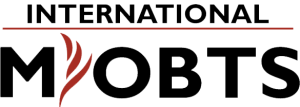
Call for Papers
James Cook University, Singapore
Submission Deadline is Monday, January 22, 2024
Conference Dates: 27 - 30, June 2024
Future Frontiers: Integrating AI & Modern Technologies in Management Education
Submission Guidelines | Paper Submission
International MOBTS 2024 Team:
- Brandon Taylor Charpied, MOBTS / Jacksonville University
- Abhishek Bhati, James Cook University
- Caroline Wong, James Cook University
- K Thirumaran, James Cook University
Come experience the Garden City in all of its beauty as MOBTS returns to Asia for the first time since 1997!
Join us in Singapore at the James Cook University for the 2024 MOBTS International conference. James Cook University Singapore opened its doors in 2003 as an extension of James Cook University in Australia, a university that perennially ranks in the top 2% of global rankings. Today it serves as a leader in quality in higher education in Singapore where it serves the high density local population of 4-million people across 205 square miles.
Singapore is a true melting pot in Asia being home to an immense number of diverse ethnic populations, religions, and languages, all living harmoniously together in a city highly ranked in safety, high standards of living, and a booming economy. As Singapore continues to shine bright as a beacon of diversity amongst people, it continues to shine brighter as a beacon of diversity amongst thought.
We look forward to our conference presenters bringing forth their diverse provocations and experiential exercises to this beautiful setting in southeast Asia.
Conference Theme - Future Frontiers: Integrating AI & Modern Technologies in Management Education
There is no more pressing topic of concern and intrigue over the past decade than the rise of artificial intelligence (AI). While AI and the advancement of technologies, such as Metaspace and other virtual worlds for more content and context rich engagement, have dominated our thoughts over concern about their usage, we have finally reached the tipping point of realization that these technologies are not only here to stay, but will continue to advance at a pace often times greater than we are able to adapt to in real time. Thus, the new realization is that these are no longer devices of concern but rather tools for exploration and enhancement of the classroom.
Now the question is, "How are we adapting to them?" What are we prepared to implement and engage with not just in the present, but for all the iterations of these technologies that are coming down the pipeline? It is more imperative than ever for us, as educators preparing our students for the 'real world,' to be present and current in regard to what that world is expecting of them.
The core purpose of this conference is to bring together management educators from around the world. We want to create a vibrant international community of educators so that we can share our experience of best practices, learn from each other and build learning networks for today and into the future. As such, this is a very broad theme, congruent with the vision of MOBTS.
We welcome interactive and experiential sessions that share insights into effective teaching practices and the experience of life as an educator. We are as interested in what works as well as what does not work, as learning from failure in our view is part of the lived experience of the life-long journey of an educator. We do not wish to be prescriptive in saying what you should submit to the conference. You are the community of active management educators: from you will emerge best practices and themes.
Session Topics for Consideration
- The AI Classroom: From Theory to Practice
- How is AI revolutionizing pedagogy in management education?
- Hands-on experience with AI-driven tools for educators.
- Data-Driven Decision Making: Harnessing AI for Classroom Insights
- How are AI analytics shaping the future of curriculum development?
- Utilizing AI analytics to understand student performance and engagement.
- Beyond the Screen: The Rise of Immersive Learning Technologies
- Exploring AR, VR, and Mixed Reality in management education.
- Experience the latest in immersive educational technology.
- The Ethical Implications: AI and the Responsibility of Educators
- Balancing technological innovation with ethical considerations.
- Instances where AI made a difference, for better or worse.
- Personalized Learning Paths: Tailoring Education with AI
- How is AI enabling a more customized education experience?
- Designing AI-driven curriculum that adapts to individual student needs.
- The Evolving Role of the Educator in the AI Era
- The future of the educator in a technology-driven classroom.
- Adapting teaching methodologies in the age of AI.
- Building the Infrastructure: Challenges and Opportunities
- Necessary technological foundations for integrating AI in classrooms.
- Discussing the challenges and best practices in implementation.
- Collaborative Learning: AI-Enhanced Group Projects and Team Building
- Exploring AI tools that facilitate team-based learning.
- Successful incorporation of AI into collaborative classroom projects.
- Continuous Learning & AI: Preparing Students for a Lifelong Journey
- The importance of instilling a mindset of continuous learning in the AI age.
- Tools and techniques for fostering lifelong learning habits.
- Global Perspectives: The Role of AI in Bridging Cultural and Geographical Gaps
Proposal Formats
We very much welcome a blend of proposals including:
- Interactive sessions - exercises or cases - on a particular topic
- Workshops
- Round table provocations that encourage provocative dialogue and discourse around a topic that is a particular pressing need for discussion. Round table provocations are designed to tackle the problems other conferences would not in a safe environment.
- Presentations of good practices in management education
- Pedagogical research